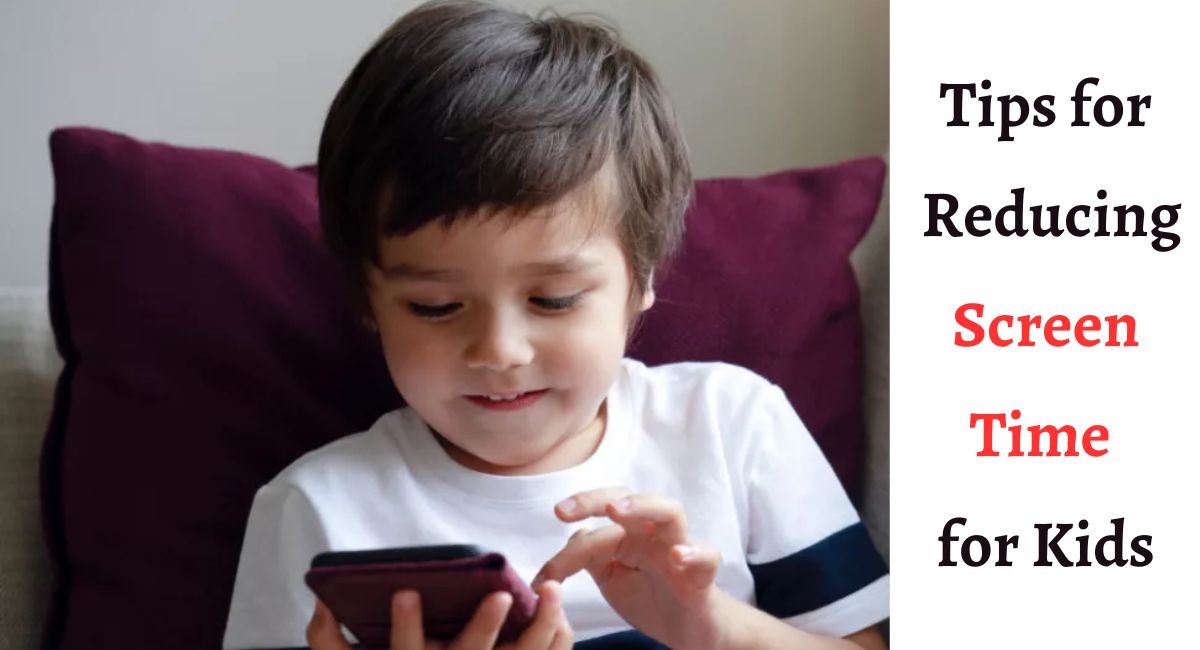Children nowadays are raised in a screen-filled world, from smartphones and tablets to computers and televisions. While technology has its benefits, excessive screen time can have negative effects on kids’ physical, mental, and emotional well-being. As a Pediatrician in Indore, I understand the importance of striking a balance between screen use and other activities. Here I am sharing 12 Tips for Reducing Screen Time for Kids.
12 Tips for Reducing Screen Time for Kids-
- Set Clear Limits: Establish clear and realistic guidelines for screen time. Aim for no more than 1-2 hours of recreational screen time per day for older children and even less for younger ones. Communicate these rules to your children and make sure they understand and follow them.
- Create Screen-Free Zones: Designate specific areas of the house as screen-free zones. This could include the dining area and bedrooms. By keeping screens out of these spaces, you encourage more face-to-face interaction and better family bonding.
- Encourage Outdoor Play: Promote outdoor activities and playtime. Physical activities not only benefit your child’s physical health but also stimulate creativity and social interactions, making them less likely to turn to screens for entertainment.
- Offer Alternative Activities: Provide a variety of engaging alternatives to screen time. Encourage your children to read books, engage in arts and crafts, play board games, or participate in sports. Make these activities appealing to divert their attention from screens.
- Plan Family Activities: Organize regular family activities that do not involve screens. Whether it’s a game night, a nature walk, or a day at the park, these activities encourage quality time together and provide alternatives to screen-based entertainment.
- Select Educational Content: If screens are used for learning, choose age-appropriate educational content. There are numerous apps, websites, and videos designed to help children learn while having fun.
- Designate Screen-Free Times: Establish specific periods during the day when screens are off-limits. This could include meal times, at least an hour before bedtime, and any other time that should be reserved for family interaction or relaxation.
- Utilize Parental Controls: Take advantage of parental control features on devices to manage and monitor your child’s screen time. These tools can help you enforce screen time limits and ensure that your child is accessing appropriate content.
- Open Communication: Talk to your children about the importance of balancing screen time with other activities. Explain why too much screen time can be harmful and encourage them to ask questions and share their thoughts.
- Monitor Content: Regularly review the content your child is exposed to on screens. Ensure it aligns with your family’s values and is suitable for your child’s age and maturity level.
- Gradual Transition: If your child is used to a lot of screen time, consider reducing it gradually to avoid resistance. Replace screen-based activities with enjoyable alternatives over time.
- Stay Informed: Stay updated on the latest research and recommendations regarding screen time and its effects on children’s development. This knowledge will help you make informed decisions for your family.
Too much screen time may lead to:
Sleep problems
Lower grades in school
Reading fewer books
Less time with family and friends
Not enough outdoor or physical activity
Weight problems
Mood problems
Poor self-image and body image issues
Fear of missing out
Less time learning other ways to relax and have fun
As a Pediatrician in Indore, my goal is to ensure the well-being of your children. By implementing these 12 Tips for Reducing Screen Time for Kids, you can create a healthier screen time balance that supports their growth, development, and overall happiness. Remember, Never forget that tiny adjustments over time can have a significant impact.




